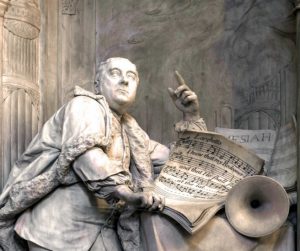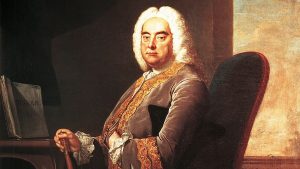By Donato Cabrera│medium.com/@donatocabrera
December 13, 2020

George Frederic Handel in Westminster Abbey
There are two major pieces that are now only associated with Christmastime that originally had nothing with the holiday. One of them is Handel’s oratorio, Messiah.
By the time Handel wrote his sixth oratorio, Messiah, in 1741, the German composer had lived in England for almost three decades. He spent the first part of his English career writing Italian operas, which were all the rage. However, as tastes changed and the public’s desire for a more chaste evening of entertainment grew, Handel turned away from opera and began writing oratorios in the 1730’s.
The premiere took place in Dublin on April 13, 1742 and received its London premiere about a year later….both during Easter time. In its entirety — three parts — it tells the story of Jesus’ birth, life, death and resurrection. However, advent season is the time of year in which most Christians reflect upon the life of Christ, so it is not sacreligious to perform Messiah during this time, but hearing the piece in its entirety during Easter lends to the celebratory nature of the holiday.

George Frederic Handel
Handel’s forces for the premiere and subsequent performances during his lifetime were small and modest. As the piece gained worldwide popularity and performances abounded, versions and orchestrations for much larger forces were created. For a 1786 performance in the Berlin Cathedral, for instance, Johann Adam Hiller created a version for a choir of 259 and an orchestra of 87 strings, 10 bassoons, 11 oboes, 8 flutes, 8 horns, 4 clarinets, 4 trombones, 7 trumpets, timpani, harpsichord and organ!
In general, I’m a huge of the period performance movement, particularly with regard to baroque performances. However, I’ve always been a sucker for this gloriously grand performance, conducted by Thomas Beecham.
But if I were to recommend one performance to enjoy during the holiday season, or any season, it would be this one.
